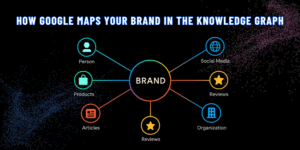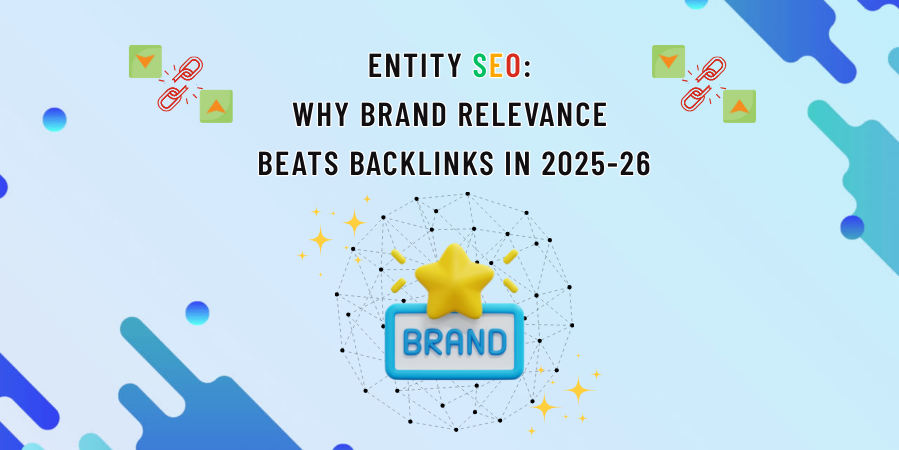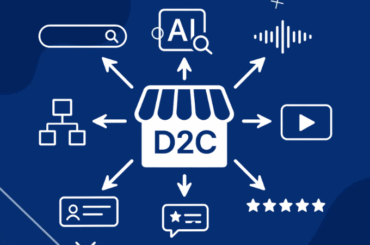A few years ago, SEO was a simple numbers game. Whoever collected the most backlinks usually climbed to the top of Google. But times have changed. Search engines are smarter, users are pickier, and backlinks aren’t the only vote of confidence anymore.
So, what matters now? Brand relevance. Or in SEO terms: Entity SEO.
It’s not a buzzword; it’s the future of ranking. And if you’re still chasing backlinks without building your brand as a recognized entity, you’re already falling behind.
This blog will help you understand all about Entity SEO and why brand relevance beats backlinks in 2025-26. So, stay tuned and read on!
What Exactly Is Entity SEO?
Think of it like this: Google isn’t just some search bar anymore – it’s more like that friend who remembers everything about everyone. In its head, there’s this giant map: people, brands, places, random ideas… all linked together. That’s what the Knowledge Graph is.
Now here’s the kicker: if your business makes it onto that map, you’re not just “a website” in Google’s eyes. You’re a brand: a real one, with a voice and expertise.
So, when someone types in a topic you talk about, Google doesn’t just count links and keywords. It pauses and asks itself:
- “Wait, are these guys really known for this?”
- “Do other people talk about them?”
- “Do they actually own this subject?”
If the answer is yes, you can leapfrog sites with double the backlinks. Why? Because Google trusts entities more than empty noise.

Three Pillars of Entity SEO
At its heart, Entity SEO rests on three pillars: knowledge graphs, topical authority, and brand signals. Think of them as Google’s way of asking: Do I know you? Do I trust you? And do people recognize you? When your brand checks all three boxes, you stop being “just a website” and start being a recognized entity.
Let us acquaint you with these three pillars of Entity SEO in detail:
1. Knowledge Graphs: Google’s Version of Your Business Card
Picture this: you search for your favorite actor, and a neat little box pops up with their photo, bio, movies, and facts. That’s the knowledge graph in action.
The same thing can happen with your brand. The more Google understands about you, your services, your team, and your content, the easier it is to show you as an authority.
Here’s how to get there:
- Keep your brand info consistent across every platform (no surprises).
- Add schema markup so search engines don’t have to guess what your content means.
- Publish content that circles back to your core themes, repeatedly.
Once you’re mapped into that graph, you’re not fighting just for rankings; you’re building a digital identity.
2. Topical Authority: Stop Chasing Keywords, Own the Topic
Old-school SEO said: “Find a keyword, write an article.” Done. But today, that’s like trying to win chess by only moving pawns. Google’s looking at the whole board.
Here’s an example: say you run a cybersecurity company. A one-off blog post on “firewall tips” won’t do much. But imagine if you:
- Built a master guide on “Cybersecurity for Businesses in 2025”
- Backed it up with deep dives into ransomware, phishing, compliance, and zero-trust security
- Added case studies or expert quotes
Now, instead of being “a site with some articles,” you’re the site that owns the topic. That’s topical authority. And it’s gold for Entity SEO.
3. Brand Signals: The New Currency of SEO
Here’s where it gets interesting: Google’s paying attention to your reputation outside your website. Even without backlinks, things like these can lift you up:
- Someone mentions your brand in an industry blog.
- Customers leave glowing reviews.
- Your posts get shared (or argued over) on LinkedIn or Twitter.
- Your brand name is consistent and professional everywhere.
These are brand signals, and they’re the new currency. Think of it like real life: if enough people vouch for you, your reputation sticks.

Real-World Proof: Brands Winning with Entity SEO
It’s one thing to talk theory, but the best way to understand Entity SEO is to see how authentic brands are already using it to stay ahead. Here are a few quick examples:
- Knowledge Graph Example: Think of Nike. When you search “Nike founder,” “Nike shoes,” or even just “swoosh,” Google instantly connects the dots. That’s entity power, it knows the brand inside out.
- Topical Authority Example: HubSpot doesn’t stop at one blog on inbound marketing. They run ebooks, courses, podcasts, and even tools. Google sees them as the authority, so they rank across the board.
- Brand Signals Example: Zomato in India trends every other week, often because of a cheeky tweet. Whether people love or hate it, those constant mentions tell Google: this brand is alive, relevant, and trusted by users.
Quick Look: Traditional SEO vs. Entity SEO
To help you understand it better, which is better: traditional SEO or entity SEO? We are now presenting a comparison table between the two:
| Aspect | Traditional SEO | Entity SEO |
| Main Focus | Quantity of backlinks | Brand mentions, knowledge graph, and topical authority |
| Content Style | Keyword stuffing and scattered blogs | Deep topic clusters and expert-driven guides |
| User Behaviour | Rarely notice backlinks | Constantly engage with brands |
| Long-Term Stability | Vulnerable to algorithm changes | Long-term presence in knowledge graphs |
| Visibility/ Brand Growth | Mostly search listings | Listings, snippets, panels, and AI results |
Why This Shift Matters in 2025-26
Search isn’t just about links anymore. With AI search, voice assistants, and smarter algorithms, Google is doubling down on one question:
Who actually deserves to be the answer?
- Backlinks fade.
- Tricks get penalized.
- But once your brand is recognized as an entity, you stay on the map.
That’s why backlinks might get you a boost, but Entity SEO gives you long-term trust and visibility.
How Entity SEO Fits Into AI-Powered Search
AI search is changing the game. Instead of just listing ten blue links, tools like Google’s SGE or even ChatGPT-style answers try to give people the best direct response. And here’s the thing: those answers don’t come from random sites stuffed with keywords. They come from brands that Google already trusts. If your business is recognized as an entity – with solid topical authority and real-world mentions – you’re far more likely to show up in these AI-driven results. In short, Entity SEO doesn’t just help with rankings, it enables you to become “the answer.”
Simple Ways to Strengthen Your Entity SEO in 2025-26
How do you actually build Entity SEO without overthinking it? Start small:
Write content that circles around your primary expertise instead of chasing scattered keywords. Use schema markup so search engines know exactly what your content means. Collect reviews and encourage brand mentions wherever possible; these are gold for trust signals. Keep your brand identity the same everywhere, from your website to your LinkedIn.
Think of it like this: every review, every mention, and every consistent piece of content is another brick in the wall of your brand authority. Over time, it adds up, and that’s when Google starts treating you like more than just another website.
Final Word: Make Google Recognize Your Brand
Entity SEO isn’t another SEO “hack.” It’s the future. Instead of chasing short-term traffic, you’re building recognition, turning your brand into the answer Google wants to show.
And if you want help with that? That’s precisely what we do at Straction Consulting Pvt. Ltd., Noida. Our team specializes in delivering tailored SEO strategies that focus on knowledge graphs, topical authority, and powerful brand signals. The result? Long-term rankings, stronger visibility, and a brand that Google (and your customers) can’t ignore.
Ready to transform your online presence? Contact us at +91 9810430573 to discover how our expert SEO services can position your business as a trusted entity in 2025-26 and beyond.






